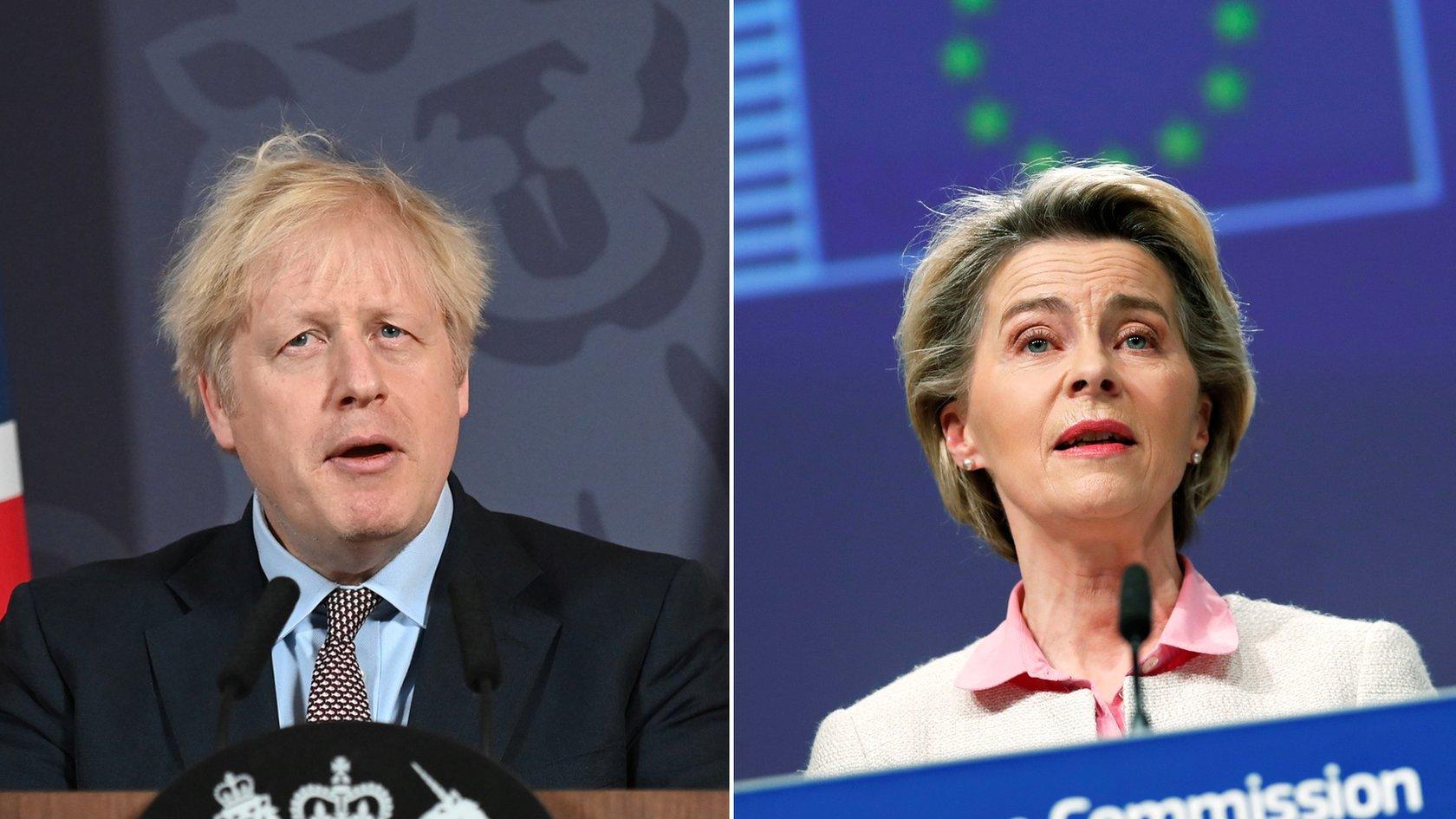Brexit: Erasmus withdrawal 'huge blow' for Scotland
- Published

Withdrawing access to the EU's Erasmus scheme as part of the Brexit deal has been described as a "huge blow" for students and universities in Scotland.
Erasmus is an EU programme that helps students study in other countries.
Scotland, England and Wales will no longer participate, but Northern Ireland's access will continue.
Universities minister Richard Lochhead said the UK's alternative Turing scheme was a "watered down" version that did not support visits to Scotland.
He said the UK government's decision was "simply unacceptable" and that the Scottish government had only found out about the Turing programme from media reports.
Prime Minister Boris Johnson previously announced that the UK would not continue to participate in Erasmus and would replace it with a cheaper scheme, named after the mathematician Alan Turing, which would include countries outside Europe.
According to the Scottish government, more than 2,000 students and staff from Scotland use the Erasmus Plus exchange programme each year.
It said Scotland proportionally sent more students and attracted more Erasmus participants from Europe than any other country in the UK.
The government estimates the scheme delivers at least £7 in value for every £1 it costs in public cash, and its value to the economy has been estimated to be worth nearly £340m annually since 2014.
'Profound disappointment'
Mr Lochhead said: "The loss of Erasmus is a huge blow. This is simply unacceptable and we are looking at alternative options.
"After years of discussions and meetings, the UK government has made these decisions irrespective of the views of the devolved administrations.
"We found out from media reports more details of the UK's alternative scheme, which is a watered down and less well funded version of Erasmus and it's not even an exchange programme because there is no support for visits to Scotland."
He said he had expressed his "profound disappointment" to his UK counterpart, Michelle Donelan.
"Crucially, it is a scheme that brings different countries and nationalities together with massive cultural and educational benefits." Mr Lochhead said.
He added: "We will resist using the Internal Market Bill to foist an inferior UK scheme on Scotland."

'Benefits will be difficult to replicate'
The UK left the EU on 31 January, entering into a transition period until the end of 2020. During this time, the UK-EU relationship continued much as it was before - including the Erasmus scheme.
Although coronavirus is now affecting student mobility, figures from before the pandemic showed that about half of UK university students who studied abroad did so through Erasmus.
A report from the House of Lords EU Committee warned the benefits of the Erasmus programme would be very difficult to replicate with a national programme as the government is planning.
Students at universities in Northern Ireland will continue to participate in Erasmus, as part of an arrangement with the Irish government.
Not all countries in the programme are EU members. Turkey, Iceland, Norway and Serbia are all "programme members", which means they participate fully.

Scotland's First Minister Nicola Sturgeon previously described the decision to leave Erasmus as "cultural vandalism", while former prime minister Gordon Brown also called for the UK to remain part of the scheme.
Mr Johnson has said leaving Erasmus was a "tough decision", but that under the new £100m scheme, students would "have the opportunity... not just to go to European universities, but to go to the best universities in the world".
The EU's Brexit negotiator, Michel Barnier, said he regretted the decision.
Erasmus students who received funding before the end of 2020 will be able to continue with their studies.
However, UK and EU students will have to deal with new immigration regulations.
- Published30 December 2020

- Published26 December 2020

- Published12 March 2021

- Published24 December 2020

- Published26 January 2021
